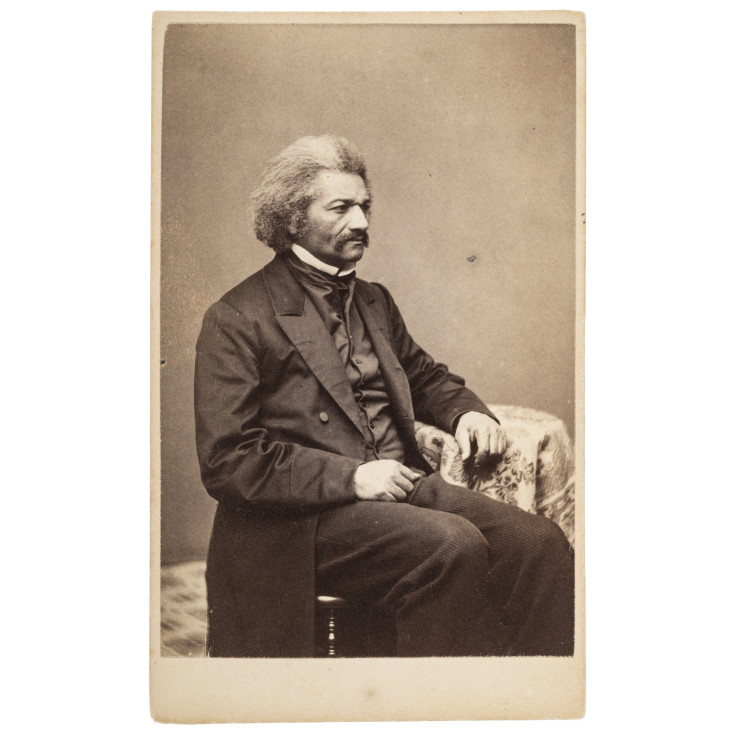Statue Of Abolitionist Frederick Douglass Vandalized In New York, Police Investigating

KEY POINTS
- A statue of famed abolitionist Frederick Douglass was found allegedly vandalized in Rochester, New York, on the anniversary of his famed "What to a Slave is the Fourth of July Speech"
- It is one of 13 statues around Rochester of Douglass, who worked with Harriet Tubman to bring slaves escaping through the Underground Railroad to the city
- Another statue was vandalized in 2018 by two drunk college students who said the incident was not racially motivated
A statue of abolitionist Frederick Douglass was found Monday along a riverbank in Rochester, New York. Rochester police said the statue was taken off its base from Maplewood Park overnight on Sunday and dumped feet away from where it stood.
Police said the incident is being investigated as vandalism and have not identified any suspects.
The base of a Frederick Douglass statue torn down overnight here in Maplewood Park. Bits of the statue scattered around the area. @News_8 pic.twitter.com/L6qgV7bVH2
— Ben Densieski (@BenDensieski) July 5, 2020
“This is all that is left at this particular moment of a monument that we put so much work and thought and love and care into,” Carvin Eison, Project director for the Re-energize the legacy of Frederick Douglass, told Rochester CBS-affiliate WROC. “What comes of this? Is this some type of retaliation because of the national fever over confederate monuments right now? Very disappointing, it's beyond disappointing.”
President Trump took to Twitter Monday voicing his own anger over the statue’s vandalism.
The vandalized statue is one of the 13 Frederick Douglass statues erected across the city in 2018 in the abolitionist’s honor. Douglass, along with Harriet Tubman, would regularly shuttle slaves to Rochester as part of the Underground Railroad before the Civil War. It culminated with Douglass’ “What to the Slave is the Fourth of July” speech, which he delivered in Rochester on July 5, 1852. Sunday marked the 168th anniversary of the speech in the city.
It’s the second recorded act of vandalism on a Frederick Douglass statue in the city. The previous occurred in 2018, when St. John Fisher College students John Boedicker and Charles Milks were reportedly intoxicated at the time they pulled down a different statue of Douglass and were seen carrying it down the street. The two were allegedly shouting racial slurs at the time, though Boedicker has maintained the incident was a drunken mistake and not racially motivated.
Some residents are hoping Sunday’s act was in the same vein.
“We’ve been down this road before I actually spoke to the vandals of the first one,” local pastor Rev. Julius D Jackson Jr. said. “I would like to believe it’s not that, it was just some kids. But it wouldn’t surprise me if it’s some retaliatory, something going on.”
© Copyright IBTimes 2025. All rights reserved.





















